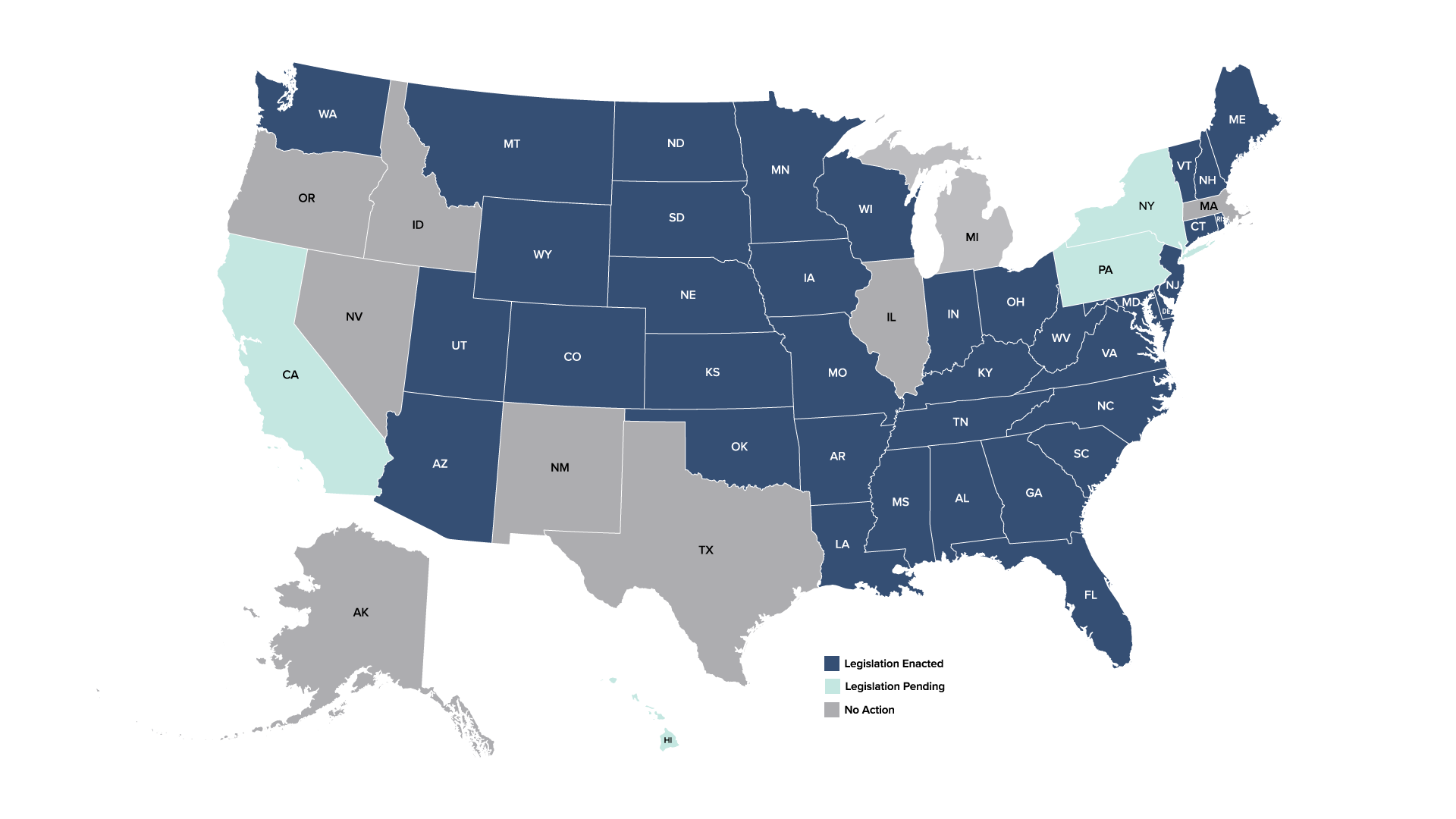
Advantages of the Interstate Counseling Compact and What It Means for Professional Counselors
Since 2019, ACA has been working with the National Center for Interstate Compacts to create and operationalize a compact for counselors — and now the Counseling Compact is operational. Thirty-seven states have now passed the Compact legislation and have joined the Commission, which will likely start granting privileges to practice in other Compact states by the end of 2025. The Compact will significantly change the way counselors can practice and provide continuity of care and the ability to reach underserved populations.
Process
Latest News
South Dakota Becomes 33rd State to Sign Interstate Counseling Compact into Law
Feb 14, 2024
The dream of many licensed professional counselors to practice across state lines continues to move forward with Governor Kristi Noem signing into law her state's Counseling Compact legislation.
This milestone makes South Dakota the thirty-third state to ratify the Counseling Compact, which allows professional counselors licensed and residing in a Compact member state to practice in other member states without the need for multiple licenses.
“The Compact continues to expand across the country as states recognize that the ability to practice across state lines is essential in meeting the mental health needs of so many people. The Compact represents the biggest change in the profession in 20 years and is truly historic. The significance of the changes the Compact will bring to practice represents a milestone for the profession. It’s heartwarming to think about how many people will be helped due to the number of states participating,” said Lynn Linde, project lead.
Funded and created by the American Counseling Association, the Counseling Compact was finalized in December 2020 and has now been passed by the legislatures in Georgia, Maryland, Alabama, Mississippi, West Virginia, Utah, Maine, Florida, Kentucky, Nebraska, Tennessee, Colorado, Louisiana, Ohio, New Hampshire, North Carolina, Delaware, Wyoming, Arkansas, Virginia, Kansas, Washington, Montana, North Dakota, Oklahoma, Indiana, Vermont, Iowa, Missouri, Connecticut, Wisconsin, New Jersey and South Dakota. Currently, the Counseling Compact has been introduced in at least six states this legislative session.
Compacts provide a pathway for counselors to move seamlessly from one state to another through an agreement among states to recognize another state’s license. Previously, counselors have had difficulty transferring their licenses from one state/jurisdiction to another because of the independent nature of jurisdictional licensing rules and regulations. There was little consistency regarding the requirements for licensure and these varying requirements make it difficult to transfer one’s license.
The Counseling Compact enables professional counselors who meet uniform licensure requirements to quickly obtain a privilege to practice, which is equivalent to a license to practice counseling in another state.
For more information, please visit CounselingCompact.org.

